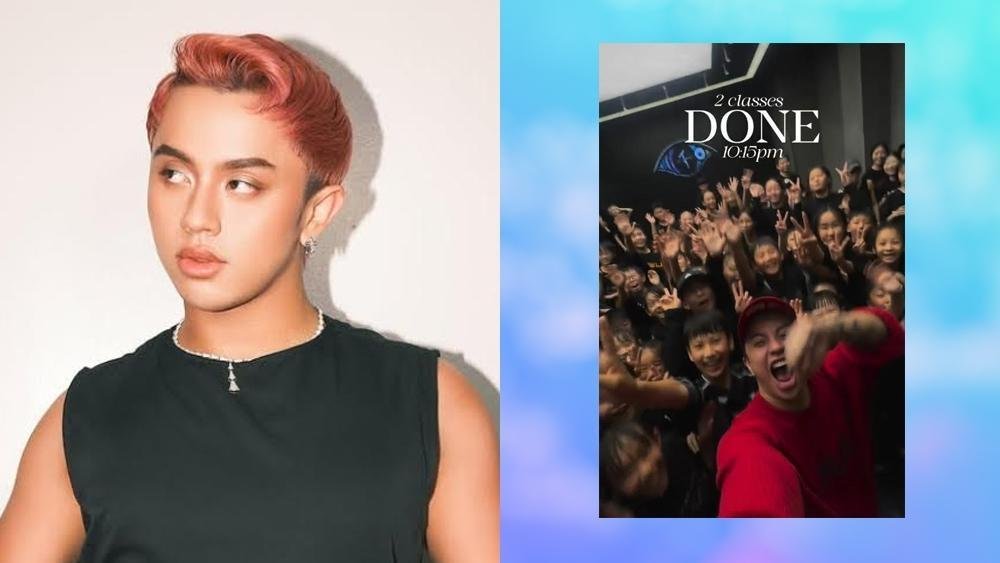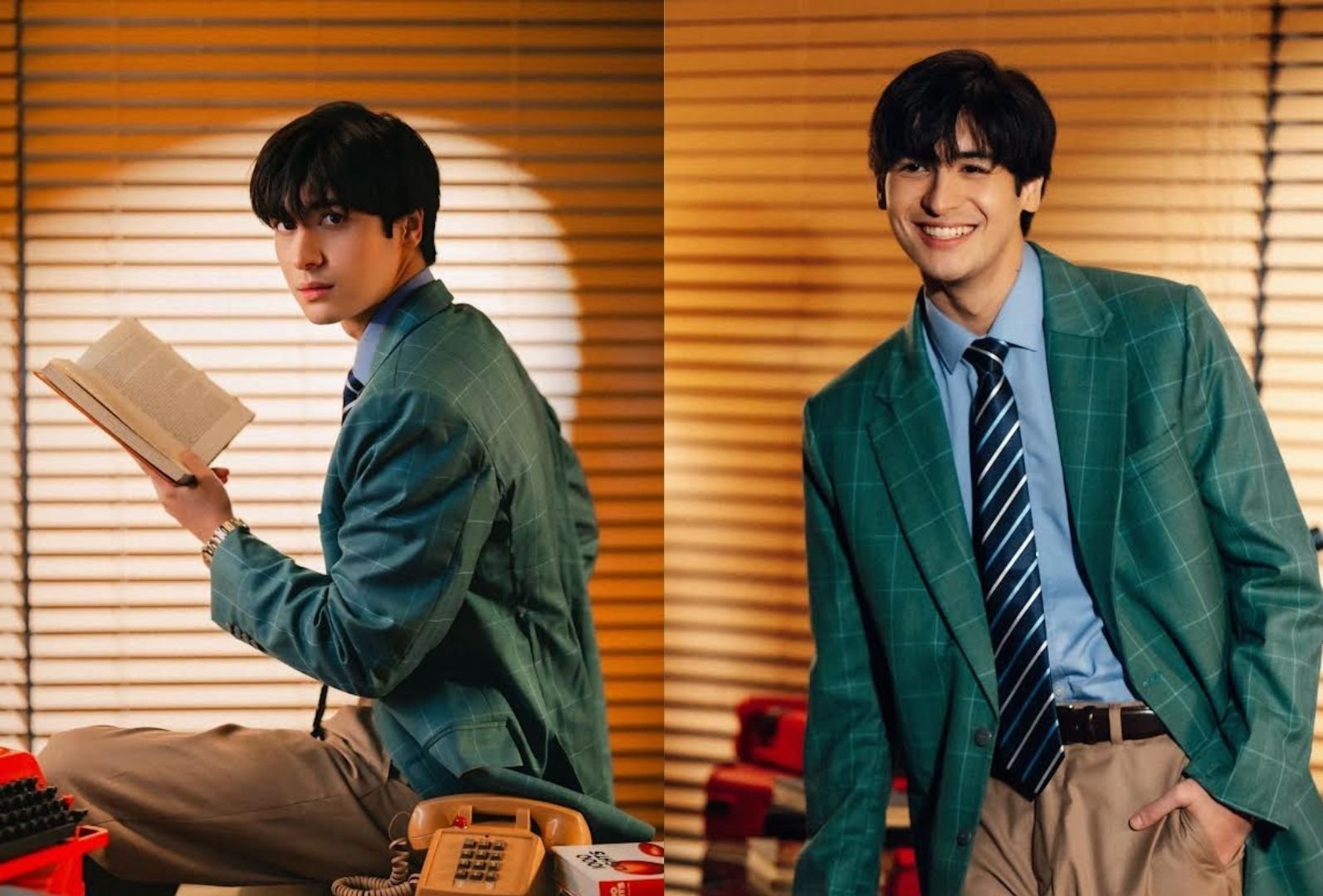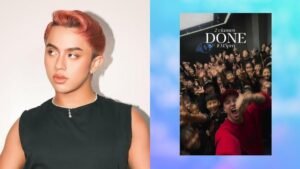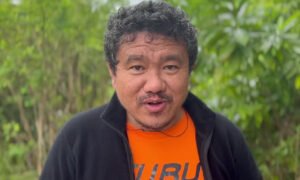Meeting new people always seemed daunting. I always had to explain myself to the line of questions that seem to follow the mere utter of a name like mine.
“How do you pronounce that?”
“Ashlyn? A-iy-slinn? Ass-lyn?”
The last pronunciation was always followed by a slight grin time and time again.
It’s Aislinn (Ace-lynn)
“And what was that other name people called you? What was it? Roy? Ruby?”
Rui. It’s Rui (Rue-i).
“Oh yeah! Your names sound so… foreign.”
“Where are you from again?”
I’m from Dubai.
“Oh? You don’t look Arab.”
I’m not.
“Oh! Okay so where are you from, really?”
This is where the lump in my throat begins to form. This is where my words begin to fumble onto one another. This is where my face begins to flush to a perfectly cherry red.
I’m from the Philippines.
“Yeah, I see it now! Why didn’t you just say that?”
Because I wasn’t born there. I was born in the UAE. Because I wasn’t raised there. I was raised as a first generation immigrant in Dubai. Because I never learned the language enough to be able to hold a conversation for more than five minutes. English is my first language and I know more of Arabic and French than I do Tagalog.
There was a plethora of reasons I could have fleshed out to this complete stranger. But I bite my tongue, shrug it off and hold my breath before letting them see my trademark smile.

A third-culture kid is a term coined by sociologist Ruth Useem in the 1950s to describe children who spend their formative years being raised in a country that isn’t their parents’ homeland. A BBC article described TCKs as citizens of everywhere and nowhere. As a third-culture kid myself, the description resonated with me in ways that I couldn’t comprehend. I guess it’s the reason why I’m writing this in the first place.
Being a third-culture kid is like being a chameleon in a kaleidoscope.
You’re always adapting to the world around you, just enough to relate but never fully conforming to a single pattern. As the kaleidoscope of your life begins to shift between shapes and colors; cultures and languages, you learn to blend in. You become the chameleon. A person shaped by change and defined by movement. People see you as where you come from or where you currently are but it isn’t that simple. You are a mosaic of all the people and places that bore you. None of which can truly explain you on their own. It’s only when another chameleon steps into your kaleidoscope, do you feel seen. They see the quiet fluidity of your identity but recognizes it exactly as it is — yours.
Almost everyone in my life is an immigrant and in a country like the UAE, you never feel that out of place. As I grew older I began to question what identity truly meant. The dictionary defines identity as “the fact of being who or what a person or thing is.” I was born in the UAE. I learn about their cultural values, history, and traditions. I can name all the greatest innovations and landmarks this country has to offer, I can list down each and every one of its achievements in chronological order and I know I can never truly identify as Emirati. Because I’m not. I’m filipino.
My parents raise me as filipino. I know that I have to ‘mano po’ all my elders, our family’s sibling order is important, I call my older brothers and cousins as ate and kuya, and we always eat at the dining table as a family. Things like respect, family, and hospitality ingrained into my upbringing, that was how things were meant to be. But I could never fully grasp the language, never could hold a conversation in Tagalog for more than a mere five minutes, never got any of the jokes told on family gatherings. I could never comprehend the togetherness all my cousins had. It’s a silly thing to feel left out of insignificant things like that but I still feel like I’m worlds away from an entire community that I’m supposed to call home. Then again, how can I feel a sense of loss for something I never had in the first place?

I know that not every Third Culture Kid’s experience is the same. But as a child of Filipino immigrants, there were these mixed signals I dealt with when it came to my culture.
Our parents deflected us from all their fears. It’s not like they were welcomed to the UAE with open arms. They built themselves from the ground up before bringing us here. The ensured we had everything we could ever want and never look back. They faced the hardship and isolation that came with immigrating. They took the ridicule that came with the smallest tinge in their accents. They withstood the culture shock and homesickness that followed being in a foreign place for the first time ever. They took it all because they loved us. Like all parents, they never wanted us to experience what they had to. They feared the day that we would want to go into the world that treats people like us as unkindly.
When my family first immigrated to Dubai, my brothers didn’t want to adjust to living here. They didn’t want to make new friends because they had each other. So they spoke in Tagalog like it was their own secret language that excluded all else. Our family was then told off by a few concerned teachers and parents who said their continuous conversations in Tagalog made other children feel left out. Since then, my siblings and I would speak to each other solely in English. I wouldn’t be allowed to speak in Tagalog in or out of a household built on Filipino values, culture and media. The only difference between me and my brothers was that I never got to learn Tagalog. My parents would tell me that knowing English as my first language is a privilege – a privilege they provided for me. A privilege that separated me from the four people I looked up to most; all of them – my family. So now when my extended family members ask me why I don’t know Tagalog, I just shrug it off and smile.
No one in my family will ever understand how it feels to be a daughter of displacement and a story mistranslated.
Whenever we went back to the Philippines, I was never included in any of the games my cousins played because I was from the UAE. I was more “frail and fragile”. To them, I wasn’t Aislinn or Rui, I was “madame”, the rich kid, the privileged one, the exception. My identity reflected a status symbol, a success story, a miracle but never once a regular kid. Maybe that’s where my feelings of divide began. Feeling like I never belonged in my family in the Philippines and was simply left out of the equation. It was as if my very being was lost in translation. When I said, “I’m not any different”, they blocked off the two words that held my true feelings. I know that the way these things was never intentional, that they might have simply done it in awe admiration and love, but the feelings that came with it was never just nothing to me. Actions and words morphed into nightmares I never intended on carrying.
Most TCKs have a complex relationship with the word “home”. My parents usually refer to home as the Philippines. If that’s so, then I feel the most out of place living at “home”. Like a stranger in my own land, if I could even call it that – my own. There’s such a huge disconnect from a place that’s supposed to feel native. My brothers and I refer to Dubai as our home. The place where we have friends, have an education, have a life. Every highway, park and skyscraper – we knew this city like the back of our hands. We grew up in a house of happiness and laughter. A place we felt like ourselves. This is the place that we could comfortably call ours. But I think my brothers knew and understood this feeling long before me. This bittersweet feeling that lingered with questions of where we belong. Third Culture Kids: children of everywhere and nowhere.

But being a TCK does come with its perks. Being surrounded by TCKs since childhood, I learned what being privileged really meant. Sure, we were safe and our families had sufficient funds to give us all we could ever need. Even so, we live protected from the word discrimination. My classmates and I know how fortunate we are being at a school and country that values equality in every sense of the word. Especially when we see the discrimination others face all over the world.
We grew up in a bubble where diversity and tolerance weren’t just values but a way of life in a place we thought was the whole world. The second that we did encounter prejudice, we already had a broadened global perspective that things like that wouldn’t affect us as much as the identity we already battle with.
For instance, when I was younger, my mom would always make sure my hair was “perfect” in her sense of the word. That sense being straight and slightly wavy at the end. As I grew older, my hair grew curlier and I no longer held the attributes of perfection. It was only then did I realize that my mom had only felt that way because of the stigma from our culture surrounding the standards of beauty back in the Philippines. Of course those insecurities and ideologies were passed down to me. I listened, I understood. But fortunately, being the TCK I am, I didn’t have to share the same views. I had a broader perspective when it came to words that were always stuffed into a single box – words like “beauty”. It’s almost ironic how beauty, a word that others are in constant battle with, is a word I never questioned and yet I feel more insecure regarding my own identity, something everyone seems to understand.
Something that came to me while writing this article is the way TCKs are more culturally sensitive towards people of different ethnicities. Then again, it could just be the generation we’re living in but I believe that TCKs are building a new generation of cultural sensitivity and diversity because we understand what it’s like to be different and treated a certain way. We understand the effect words can have on a child because it’s happened to us. Though the experience may not be unique, it’s ours.
So for all the TCKs out there who feel the same way, just know you aren’t alone. I get how your feeling and hopefully this post brings together a community of people who feel the same way too. I like using the word “us” when I talk about Third Culture Kids, it makes me feel included in a time when identity remains uncertain.
Being a Third Culture Kid is a privilege in itself. We’re people of the world and one would argue, one being me, that TCKs make the world more inclusive and bring about new ideas in a place that is so clouded by closed minded thinking and everything it entails. Third Culture Kids are the embodiment of change and understanding that the world needs. We are a mosaic of all the places that bore us. And even though I still don’t really know who I am, I know that having a background like mine is knowing that my story is never as far as it seems. I’ll find it one day.












